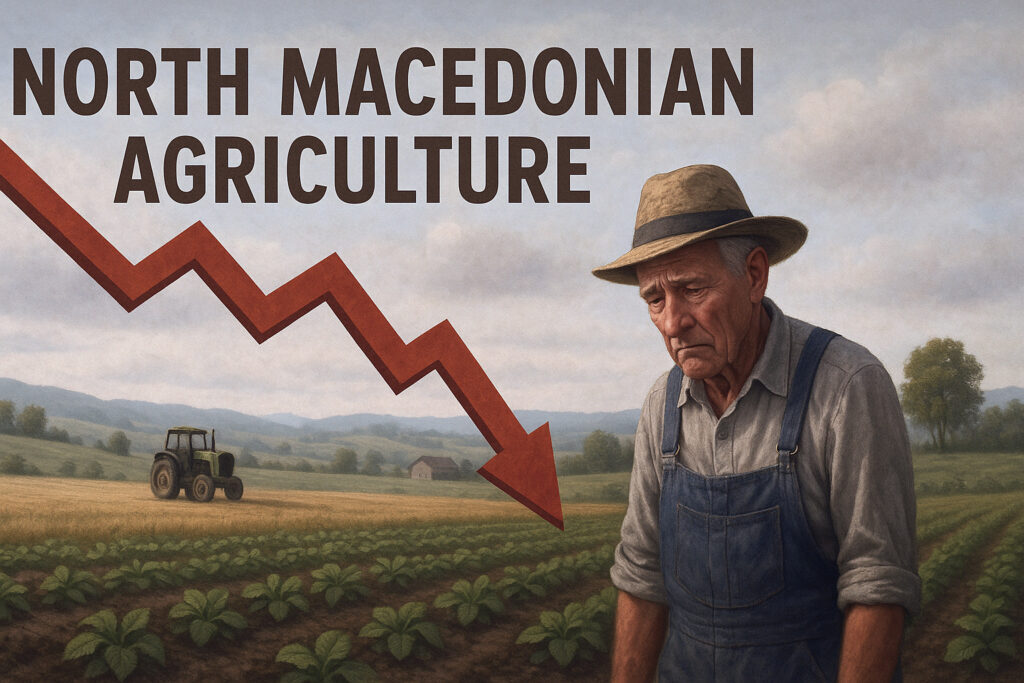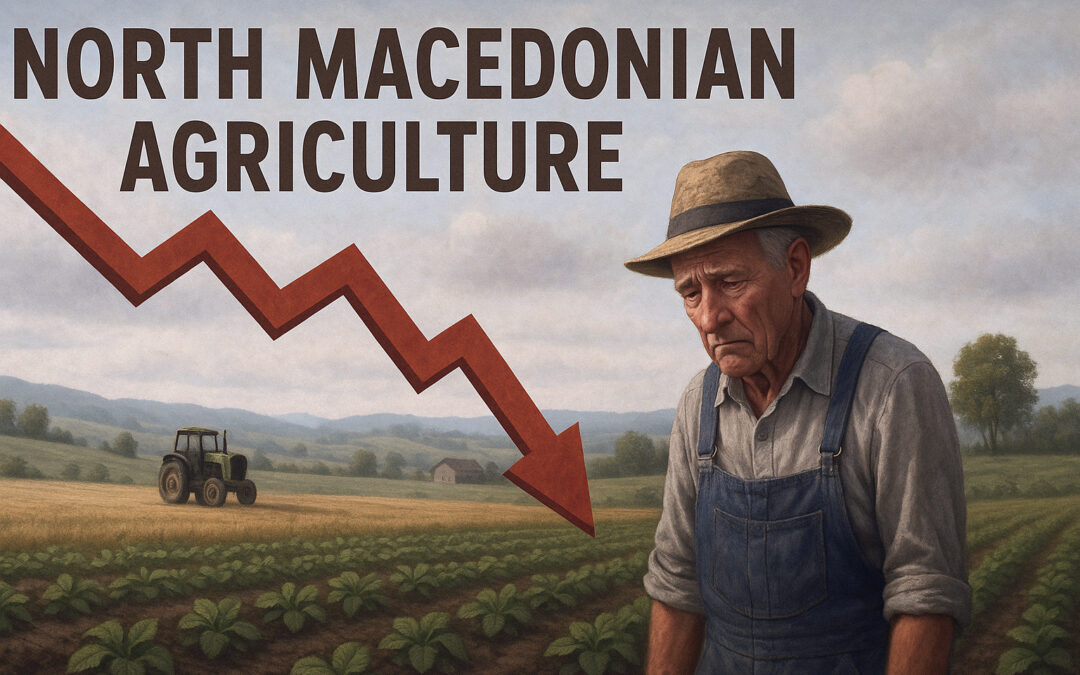Skopje, June 2025 – North Macedonia’s agriculture is facing a system failure and dangerous collapse, warns the Institute for Sustainable Development. Despite years of state support and subsidies, only 4.2% of the 88,000 registered agricultural holdings were insured in 2024. This shows that trust in insurance is collapsing, while uncertainty about the future of farming is growing.
The average age of a farmer in the country is now between 60 and 61 years. Young people are leaving the countryside. They see farming as hard, unstable, and without prospects. There is little modernization, no digital transformation, and working conditions are poor. As a result, fewer and fewer people see farming as a real future.
According to the Institute’s projections, the country is on track to lose 30% of its active farmers by 2030. That would reduce the total to just around 62,000 agricultural holdings. This huge decline means that agriculture fails in the country. This would be a serious blow to food production, rural life, and the economy.
Farmers’ associations are raising their voices. The National Federation of Farmers says that insurance is a key part of any sustainable agricultural system. But they warn that insurance companies often fail to pay out damages, especially in times of crisis. This deepens the mistrust and leaves farmers feeling abandoned.

The Institute for Sustainable Development calls for urgent action. The future of farming depends on youth engagement, access to modern technology, and proper risk protection. Without serious reforms, North Macedonia risks a rapid collapse of its agricultural base.
The country must act now. It must invest in a new generation of farmers, in reliable support systems, and in strong insurance models. Without bold steps, farming in North Macedonia may not survive the next decade.
The government of North Macedonia must urgently increase financial support for young farmers if it wants to secure the future of the country’s agricultural sector. Without dedicated investment in youth-led farming initiatives, the current trend of aging farmers and rural depopulation will only accelerate. Young people need access to grants for land, equipment, and training, as well as startup support tailored to modern, sustainable agricultural practices.
Equally important is the need to improve the efficiency and transparency of subsidy application and approval processes. Many young farmers are discouraged by slow bureaucratic procedures, unclear criteria, and long waiting times for receiving state support. Streamlining these systems, reducing paperwork, and ensuring timely payments would not only increase trust in institutions but also encourage more young people to enter and remain in agriculture.
A modern agricultural policy must prioritize the next generation of farmers—not only through financial support but also by removing administrative barriers that block progress. Otherwise, North Macedonia risks losing its farming base entirely within the coming decade.


Trackbacks/Pingbacks